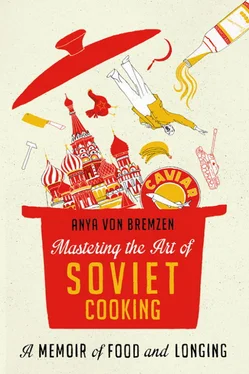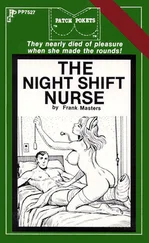War Communism showed an especially harsh face to the peasantry. An emphatically urban party, the Bolsheviks had little grasp of peasant realities, despite all the hammer-and-sickle imagery and early nods toward land distribution. To combat drastic grain shortages—blamed on speculative withholding—Lenin called down a “food dictatorship” and a “crusade for bread.” Armed detachments stalked the countryside, confiscating “surpluses” to feed the Red Army and the hungry, traumatically shrunken cities. This was the hated prodrazverstka (grain requisitioning)—a preview of the greater horrors to come under Stalin. There was more. To incite Marxist class warfare in villages, the poorest peasants were stirred up against their better-off kind, the so-called kulaks (“tight-fisted ones”)—vile bourgeois-like objects of Bolshevik venom. “Hang (hang without fail, so the people see) no fewer than one hundred known kulaks, rich men, bloodsuckers,” Lenin instructed provincial leaders in 1918. Though as Zinoviev later noted: “We are fond of describing any peasant who has enough to eat as a kulak.”
And so was launched a swelling, unevenly matched war by the radicalized, industrialized cities—the minority—to bring to heel the conservative, religion-saturated, profoundly mistrustful countryside—the vast majority. Who were never truly fervent Bolshevik supporters.
Agriculture under War Communism plummeted. By 1920, grain output was down to only 60 percent of pre–World War I levels, when Russia had been a significant exporter.
It goes without saying that the concept of cuisine went out the window in those ferocious times. The very notion of pleasure from flavor-some food was reviled as capitalist degeneracy. Mayakovsky, brazen poet of the revolution, sicced his jeering muses on gourmet fancies:
Eat your pineapples, gobble your grouse
Your last day is coming, you bourgeois louse!
Food was fuel for survival and socialist labor. Food was a weapon of class struggle. Anything that smacked of Testov’s brand of lipsmacking—kulebiaka would be a buttery bull’s-eye—constituted a reactionary attack on the world being born. Some czarist traktirs and restaurants were shuttered and looted; others were nationalized and turned into public canteens with the utopian goal of serving new kinds of foods, supposedly futuristic and rational, to the newly Soviet masses.
Not until two decades later, following the abolition of yet another wave of rationing policies, did the state support efforts to seek out old professional chefs and revive some traditional recipes, at least in print. It was part of a whole new Soviet Cuisine project courtesy of Stalin’s food-supply commissariat. A few czarist dishes came peeping back, tricked out in Soviet duds, right then and later.
But the bona fide, layered fish kulebiaka, darling of yore, resurfaced only in Putin’s Moscow, at resurrect-the-Romanovs restaurants, ordered up by oligarch types clinching oil deals.
Mom and I have our own later history with kulebiaka.
After we emigrated to America in 1974, refugees arriving in Philadelphia with two tiny suitcases, Mom supported us by cleaning houses. Miraculously, she managed to save up for our first frugal visit to Paris two years later. The French capital I found haughty and underwhelming. Mom, on the other hand, was euphoric. Her decades-long Soviet dream had finally been realized, never mind the stale saucissons we fed on all week. On our last night she decided to splurge at a candlelit smoky bistro in the sixteenth arrondissement. And there it was! The most expensive dish on the menu—our fish-filled kulebiaka! That is, in its French incarnation, coulibiac—one of the handful of à la russe dishes to have made the journey from Russia in the mainly one-way nineteenth-century gastronomic traffic. Nervously counting our handful of tourist francs, we bit into this coulibiac with tongue-tingled anticipation and were instantly rewarded by the buttery puff pastry that shattered so pleasingly at the touch of the fork. The lovely coral pink of the salmon seemed to wink at us—scornfully?—from the opened pie on the plate as if to suggest France’s gastronomic noblesse oblige. The Gauls, they just couldn’t help being smug. We took a second bite, expecting total surrender. But something—wait, wait—was wrong. Messieurs-dames! Where did you hide the dusky wild mushrooms, the dilled rice, the blinchinki to soak up all those Slavic juices? What of the magically controlled blend of tastes? This French coulibiac, we concluded, was a fraud: saumon en croute masquerading as Russian. We paid the bill to the sneering garçon, unexpectedly wistful for our kulebiaka from Praga and the still-unfulfilled yearnings it had inspired.
It was back in Philadelphia that we finally found that elusive holy grail of Russian high cuisine—courtesy of some White Russian émigrés who’d escaped just before and after the revolution. These gray-haired folk had arrived via Paris or Berlin or Shanghai with noble Russian names out of novels—Golitsyn, Volkonsky. They grew black currants and Nabokovian lilacs in the gardens of their small houses outside Philadelphia or New York. Occasionally they’d attend balls—balls! To them, we escapees from the barbaric Imperium were a mild curiosity. Their conversations with Mother went something like this:
“Where did you weather the revolution?”
Mom: “I was born in 1934.”
“What do the Soviets think about Kerensky?”
Mom: “They don’t think of him much.”
“I heard there’ve been major changes in Russia since 1917.”
Mom: “Er… that’s right.”
“Is it really true that at the races you now can’t bet on more than one horse?”
The Russian we spoke seemed from a different planet. Here we were, with our self-consciously ironic appropriations of Sovietese, our twenty-seven shades of sarcasm injected into one simple word —comrade , say, or homeland . Talking to people who addressed us as dushechka (little soul) in pure, lilting, innocent Russian. Despite this cultural abyss, we cherished every moment at these people’s generous tables. Boy, they could cook! Suckling pig stuffed with kasha, wickedly rich Easter molds redolent of vanilla, the Chekhovian blini plumper than “the shoulder of a merchant’s daughter”—we tasted it all. Mom approached our dining sessions with an ethnographer’s zeal and a notebook. Examining the recipes later, she’d practically weep.
“Flour, milk, yeast, we had all those in Moscow. Why, why, couldn’t I ever make blini like this?”
One day, an old lady, a Smolianka—a graduate of the prestigious St. Petersburg Smolny Institute for Young Women, where culinary skills were de rigueur—invited us over for kulebiaka. This was the moment we had been waiting for. As the pie baked, we chatted with an old countess with a name too grand to even pronounce. The countess recounted how hard she cried, back in 1914, when she received a diamond necklace as a birthday gift from her father. Apparently she had really wanted a puppy. The kulebiaka arrived. Our hearts raced. Here it was, the true, genuine kulebiaka—“naked, shameless, a temptation.” The mushrooms, the blinchiki , even viziga , that gelatinous dried sturgeon spine our hostess had unearthed somewhere in deepest Chinatown—all were drenched in splashes of butter inside a beautifully decorated yeast pastry mantle.
As I ate, Tolstoy’s Anna Karenina flashed into my mind. Because after some three hundred pages describing Vronsky’s passion for Anna, his endless pursuits, all her tortured denials, the consummation of their affair is allotted only one sentence. And so it was for us and the consummate kulebiaka. We ate; the pie was more than delicious; we were satisfied. Happily, nobody leapt under a train. And yet… assessing the kulebiaka and studying our hostess’s recipe later at home, Mom started scribbling over it furiously, crossing things out, shaking her head, muttering, “ Ne nashe ”—not ours. I’m pretty sure I know what she meant. Dried sturgeon spine? Who were we kidding? Whether we liked it or not, we were Soviets, not Russians. In place of the sturgeon, defrosted cod would do just fine.
Читать дальше













